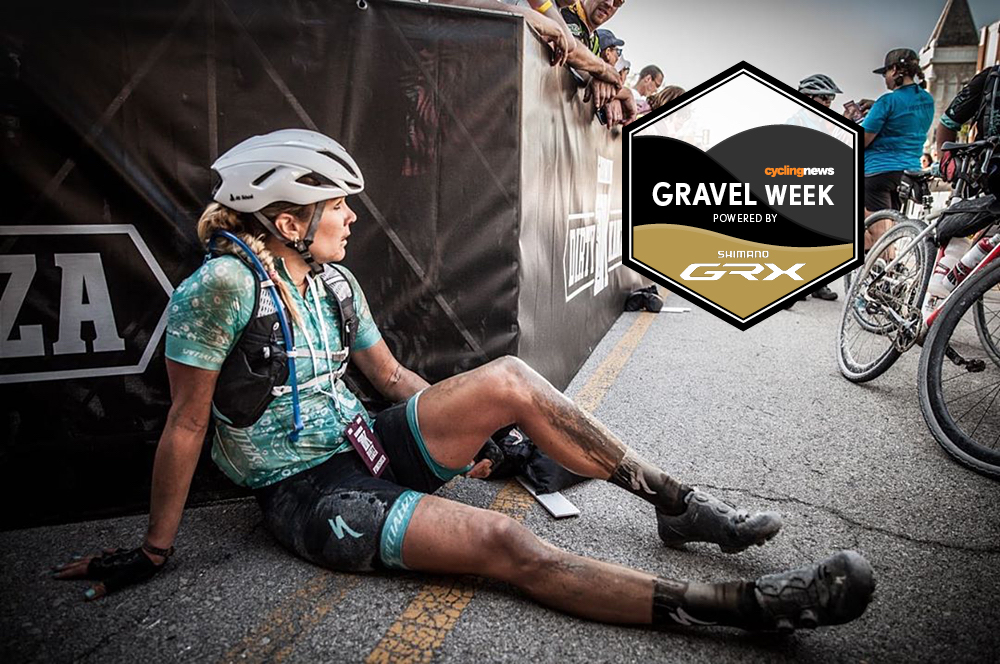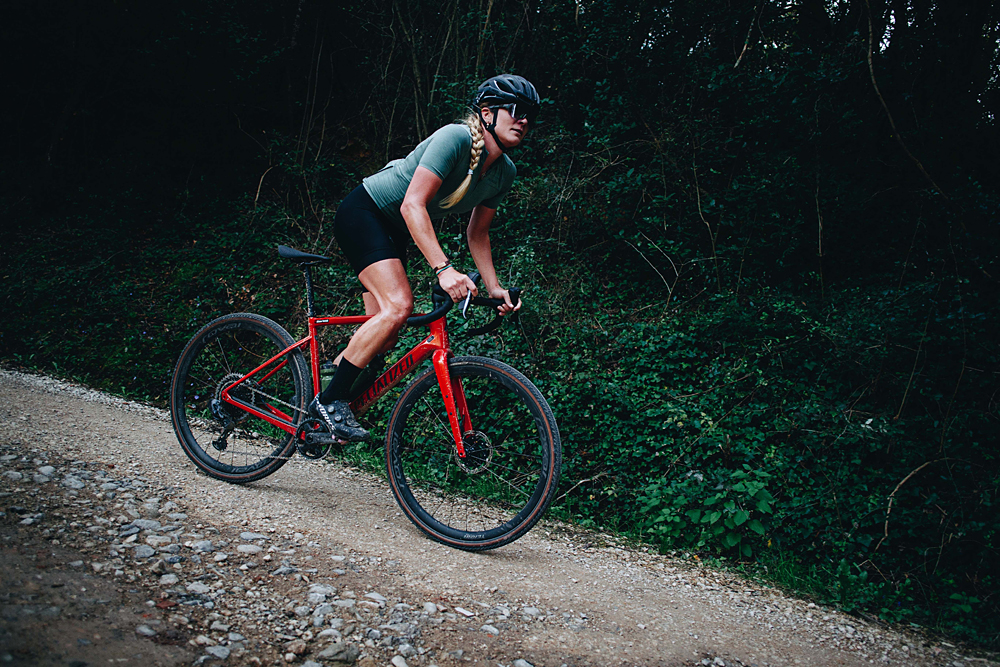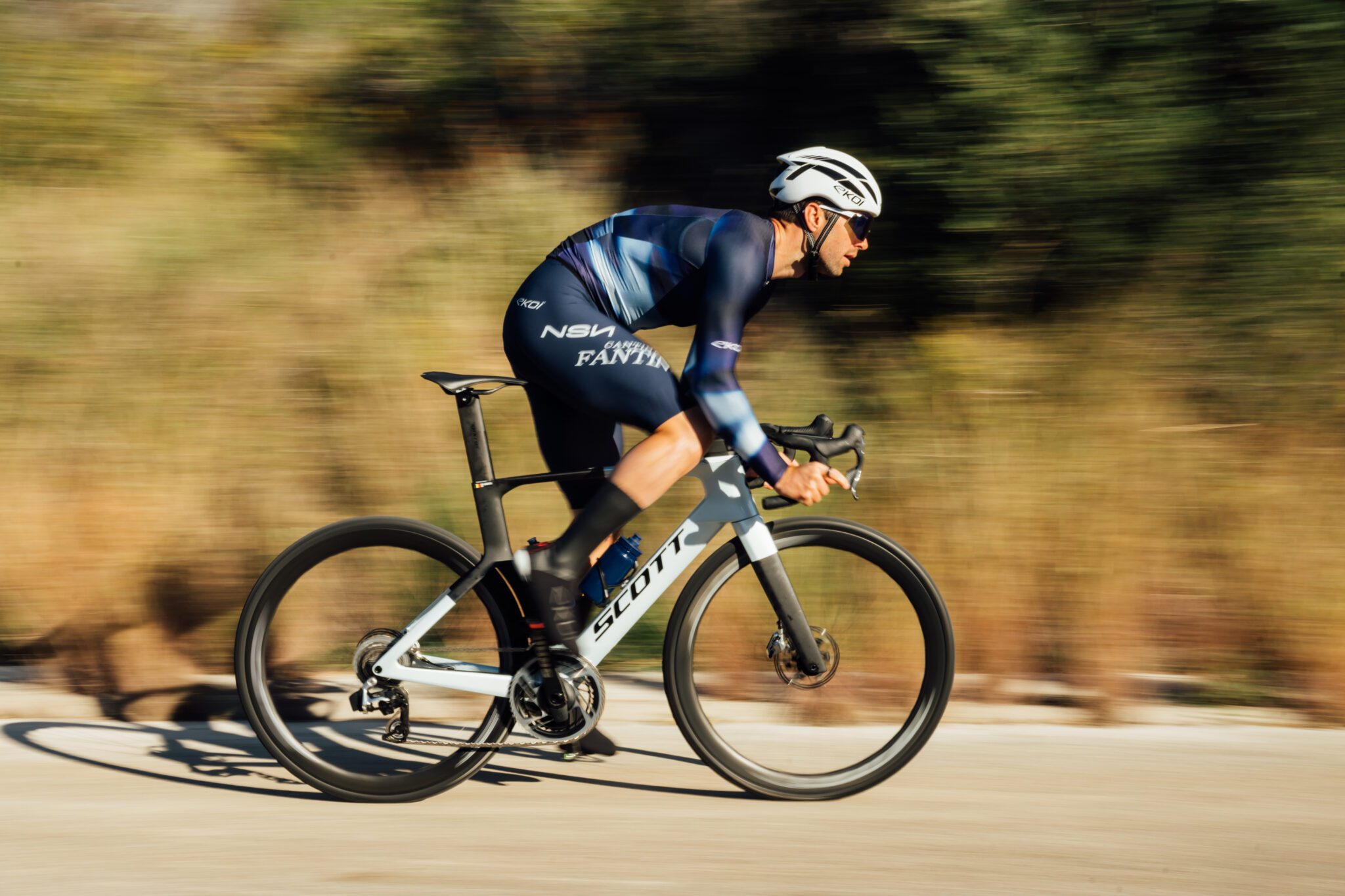Alison Tetrick: Gravel racing's rogue spirit
'What's cool about gravel are the same distances, the same courses, and overall inclusion' says Dirty Kanza winner

Alison Tetrick has quickly risen to become one of the most well-known gravel contenders in the US. She spent nearly a decade racing in the professional ranks of road racing before switching gears to a gravel adventure that saw her win the 2017 Dirty Kanza.
In an interview with Cyclingnews, Tetrick said what she loved most about gravel racing was that it's inclusive to riders with varying levels of ambition and ability and that everyone races the same distances and courses.
"I love the equal distance and being able to line up with everybody," Tetrick told Cyclingnews. "It gives everyone an opportunity to share cycling and our love for what we do on so many different levels. As a pro [road racer], I got to do these great [UCI-sanctioned] races around the world with my team, but gravel brings a lot of inclusivity.
"It's not operating up on a pedestal, and frankly, I hope it doesn't ever turn out that way. You don't want team buses and cars and support vehicles. You want something super fun where you can line up with everyone. Everyone can choose their adventure or challenge that day."
Tetrick started her pro road racing career in 2009 with TIBCO-SVB, where she spent two seasons before moving to Exergy-Twenty16, Astana BePink, Optum p/b Kelly Benefit Strategies and her last two seasons with Cylance.
She had a successful career that included stage wins at Tour Femenino de San Luis and BeNe Ladies Tour, and podium-finishes at Chrono des Nations and Chrono Gatineau. She said getting into the pro road scene can be daunting, and sometimes demoralising, simply because there's no easy or beginner pathway to racing.
"To get into pro cycling can be terrifying, so these gravel races are a great entry into the sport because it has this inclusive nature, and usually, each event has different distances," Tetrick said.
The latest race content, interviews, features, reviews and expert buying guides, direct to your inbox!
"You know, getting dropped in your local office-parking-lot criterium is mortifying. In gravel events, once the start gun goes off and the anxiety disappears at the start, it's just a really wonderful experience.
"At Dirty Kanza, I'll stay up until 2 a.m. as the last finishers are coming in and offer them a beer and a hug, and it's super cool to be able to celebrate the day. Everyone has the same day regardless if they won or just finished. Everyone has the same day, and that's what's so cool about gravel events with the same distances, the same courses, and overall inclusion."
Tetrick said she switched from the road to gravel because she needed a change from the year-in-year-out road racing calendar. She started following the gravel scene online and taking note of well-known contenders like Rebecca Rusch.
"I didn't have any more inspiring goals on the road," she said. "I wanted to find a new challenge, and Dirty Kanza looked interesting to me. I wanted to try it – something about it was intoxicating.
"I had never ridden that far before, and it was pushing so many limits for me and lining up with thousands of people, which isn't really unlike a typical Gran Fondo. Being on dirt was a new challenge. I don't own a mountain bike, and I had never ridden on dirt, that was my first race on gravel at Dirty Kanza [in 2017]. It's not unlike any other challenge."
Tetrick raced her first Dirty Kanza in 2017, where she crossed the line as the first female and in 17th position overall. Gravel racing, much like marathon racing or Gran Fondos, are mass-start events where men and women toe the same start line, along with athletes of all ability, which was a significant change for Tetrick, coming from sanctioned professional road racing.
"Racing with the men and women together, I love it," Tetrick said. "It's a different race, and there will be some team tactics and other ways to be smart while racing or just going to start, but I never intended to race gravel. I just wanted to show up and ride my bike as hard as I could and challenge myself. I want to have fun, and that's the cool thing about gravel that you can be wherever you want; at the front of the race trying to win, anywhere in the middle, or with the party bus at the back."

In pro road racing, the UCI sets maximum distances for the elite women's and men's one-day races. The Professional Cycling Council determines men's WorldTour one-day race distances with Milan-San Remo being the longest at 291km (in 2019). The UCI sets the Women's WorldTour one-day races at a maximum distance of 160km. Also, the Olympic Games maximum distances are 280km for the elite men and 160km for the elite women, and Continental Championships are 240km for the elite men and 180km for elite women.
"I never doubted my ability to race that distance," said Tetrick of Dirty Kanza's roughly 320km route. "The year I won, I set a course record, and I was never worried about being able to do the distance. Road racing has a different dynamic when starting with teams and under the sanctions. I think the distance sanctions for women are relatively ludicrous. Still, you don't necessarily need the road races to be longer to get the same dynamic effect - with attacking, breaks going up the road, and that excitement.
"Should women's road racing be longer? I don't know; I think it depends on the courses and the types of races. You can still get a solid road race in four or five hours, regardless of your gender.
"I understand for the health and safety of riders, regardless of gender, that's why there are governing bodies and rider associations to keep a system in place, especially when qualifying for Olympics or World Championships. I think the courses can be different, the style and the events, too, but I don't think there should be a [distance] limit."
UCI President David Lappartient announced in January that the sport governing body would consider creating a World Championships for gravel racing, and attempt to establish formal governance over the discipline that, so far, has mostly been unsanctioned and massively popular around the world. Tetrick believes that the gravel discipline will likely maintain a grassroots-feel even if it becomes sanctioned.
"There's this great event in Nebraska called Gravel Worlds, and I love it, and they're not sanctioned, but that's a wonderful event. A lot of tight-knit people in the gravel community would say, "We already have a gravel Worlds.'" Tetrick said.
"Gravel racing and events bring out the pure challenge and adventure that cycling should be about, and that's how we get more people in our sport that we love.
"With the growth of gravel there will be increased events. I can see it going toward some sanctioned events, and potentially an official UCI World Championships or a gravel calendar. I don't think that is the heart and soul of the gravel community, though. It will remain a little rogue and grassroots around the world. I think the culture of the sport is vibrant and independent, and it will remain in that spirit."
Even on the path less-travelled, SHIMANO GRX keeps things smooth and silent and puts you in perfect control. Find out more about the game-changing innovation within GRX at: gravel.shimano.com/en/technologies

Kirsten Frattini has been the Editor of Cyclingnews since December 2025, overseeing editorial operations and output across the brand and delivering quality, engaging content.
She manages global budgets, racing & events, production scheduling, and contributor commissions, collaborating across content sections and teams in the UK, Europe, North America, and Australia to ensure audience and subscription growth across the brand.
Kirsten has a background in Kinesiology and Health Science. She has been involved in cycling from the community and grassroots level to professional cycling's biggest races, reporting on the WorldTour, Spring Classics, Tours de France, World Championships and Olympic Games.
